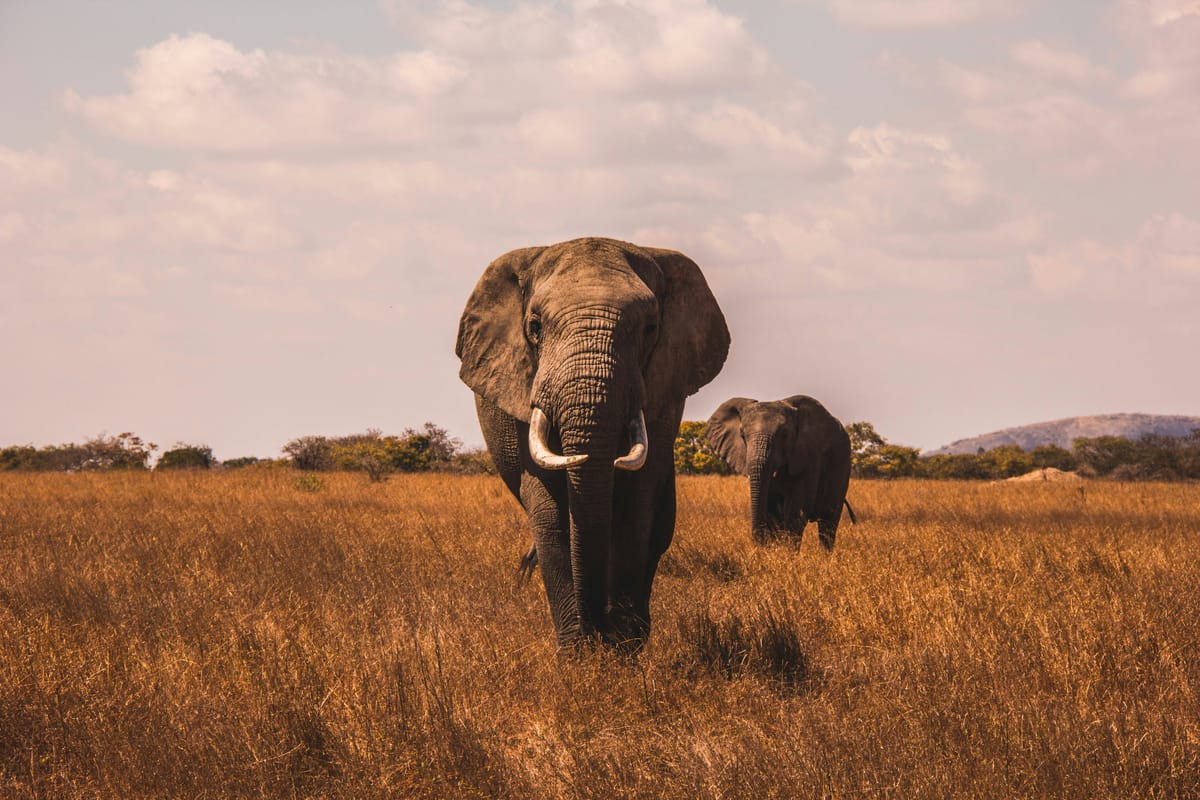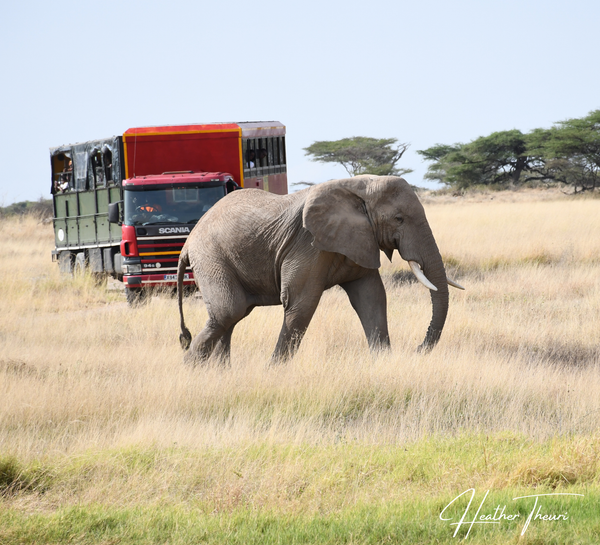Wildlife Isn’t Optional: Why Protecting It Protects Us All

Only two northern white rhinos are left in the world.
Habitat loss is now the number 1 threat to African species.
Over 50% of coral reefs? Gone to warming oceans.
Majority of headlines around animal news today are along these lines and the one thing that is crystal clear is, the planet is struggling and we are losing wildlife at an alarming rate.
I kept asking myself: How do I get people to care about Wildlife? And how can I help more people see its magic? This post is my answer.
If you google Wildlife conservation, I’m absolutely certain that you will get a number of explanations that speak about habitat loss, species, protecting flora and fauna and so on. But Simply put,Wildlife conservation is about protecting plants, animals and their natural habitats. And the goal being Continuity of life on earth for all these different species.
Now that we know what it means, why then is Wildlife crucial?
1. Maintaining Ecological Balance
Every species has a role to play in the ecosystem hence maintaining a very delicate ecological balance. A shift in that balance will cause a domino effect on the entire ecosystem. For instance a lack of predators in an ecosystem automatically leads to an overpopulation of prey disrupting the entire foodchain. For healthy ecosystems to thrive there needs to be diversity of species which ensures their survival and strengthens the overall ecosystem.
2. Cultural Significance
Many cultures, traditions and religions hold different animal species in high regard in various contexts. Certain species are seen as important symbols in based on certain beliefs. For instance the Andean condor is seen as a symbol of power and health in many Andean cultures. In Hindu beliefs Elephants are sacred symbols of peace, mental strength, and power.
There is therefore a vital cultural role that animals play in our society that cannot go unnoticed. For continuity of these cultural practices we must preserve and protecte wildlife.
3. Livelihoods & Job Creation
Millions of people rely on wildlife for their income—rangers, fishermen, tour guides, photographers, you name it. Without wildlife, these jobs vanish, leaving families and communities in jeopardy.
4. Economic Impact
Wildlife tourism is a powerhouse. Safaris, national parks, diving trips, gorilla trekking, they all drive millions of dollars into local economies. Protecting wildlife isn’t just good for the planet; it greatly benefits the host country’s economy
5. Learning from the Past: Paleontology
According to National Geographic, Paleontology is the study of the history of life on Earth as based on fossils. Fossils are the remains of plants, animals, fungi, bacteria, and single-celled living things that have been replaced by rock material or impressions of organisms preserved in rock. The fossil remains give paleontologists information on living and extinct species which sheds lights into the history of the organism.
Fossils from extinct species tell the story of Earth’s evolution and help us predict what’s next. If today’s wildlife disappears, future generations lose that history and the chance to learn from it.
6. Mental Health Benefits
Ever noticed how a walk in nature makes you feel lighter, calmer, and more connected? Spending time among animals and in green spaces has been scientifically proven to reduce stress, boost mood, and improve overall mental health. It’s nature’s free therapy session.
7.Seed Dispersal
“Plants reproduce using seed dispersal, often relying on wildlife to carry their seeds so that their offspring don't grow in their shadow. And more than half of all plants rely on wildlife to disperse their seeds. This typically happens when animals eat fruits from plants or carry away their nuts, then excrete or drop the seeds somewhere else. In tropical rainforests, animals disperse the seeds of up to 90% of tree species.” Evan, F. (2022 January 17) Why wildlife is so essential to spreading plants' seeds. World Ecnomic Forum.
8.Habitat Creation
Did you know that Beaver ponds increase biodiversity, provide a habitat for Salmon to thrive and improve water quality? Who knew right! The Beaver is an ecosystem genius through their ability to build dams. Beaver dams slow down water and the combination of the water and wood provides various water temperatures and habitats for many as opposed to a flowing stream without beavers.
The Bottom Line
Wildlife isn’t optional. It’s essential—for balance, culture, jobs, economies, health, and the future of life itself. Every species, no matter how small, is a thread in the fabric of our planet. Pull one, and everything unravels.
If you’ve ever wondered why wildlife matters, now you know. The next step? Act. Whether it’s spreading awareness, donating, or simply appreciating the natural world around you, every effort counts.
Let’s protect what makes Earth extraordinary. 🌿
Sincerely,
Blue💙




